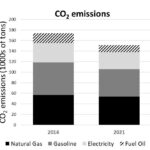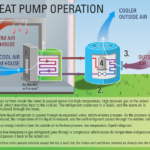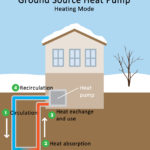
By Roger Wrubel, Brian Kopperl, and James Booth According to the Belmont Energy Committee’s most recent inventory, the town’s carbon emissions dropped from 177,000 tons to 150,000 tons per year between 2014 and 2021. The drop, which measures emissions from gasoline, natural gas, fuel oil, and electricity, results from residents shifting away from home heating oil to other energy sources, driving more fuel-efficient vehicles, and drawing their electricity from a cleaner New England grid. Except for the shift away from fuel oil, none of these reductions are happening at a pace sufficient to reach zero emissions by 2050. The committee [READ MORE]



